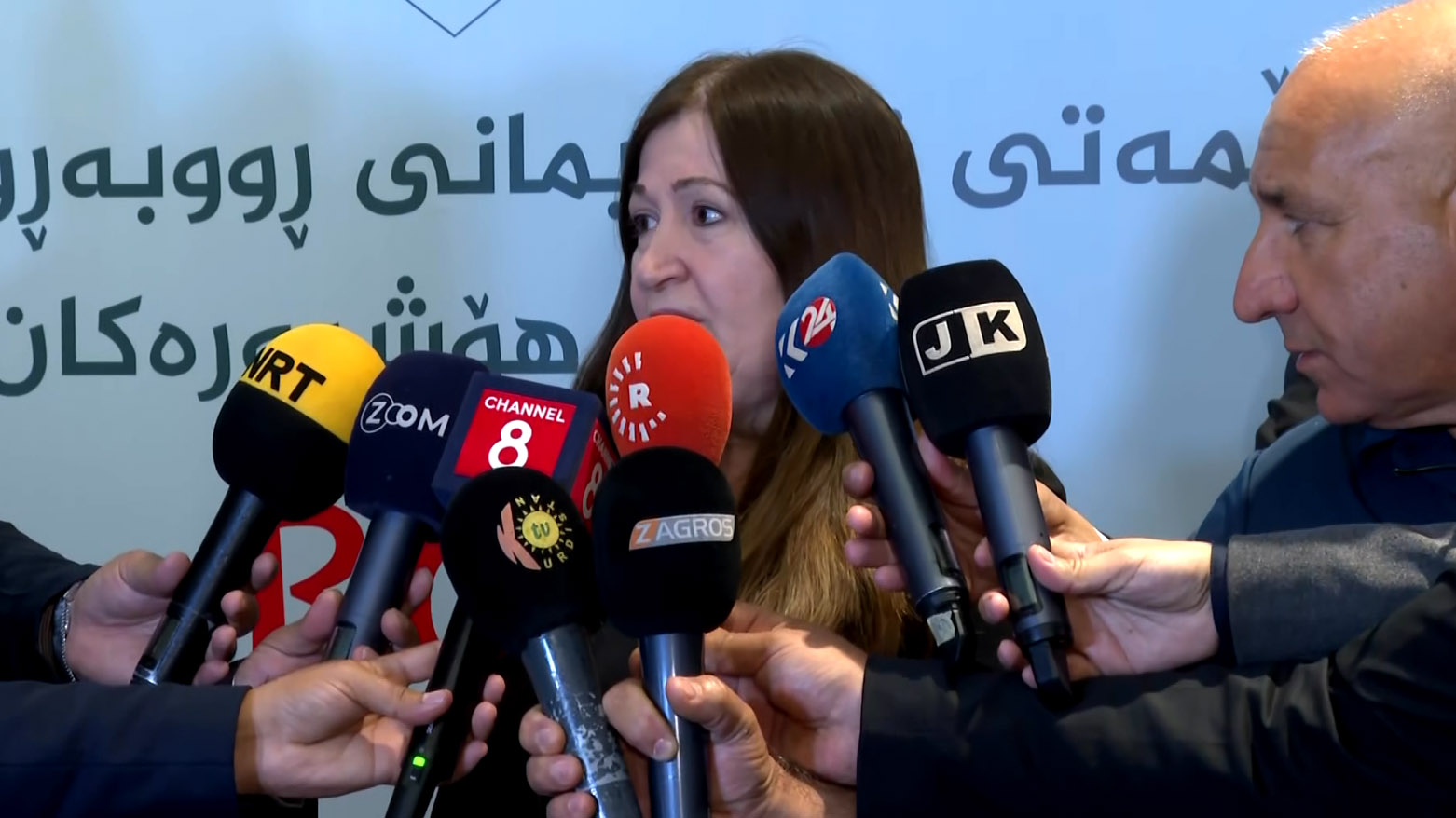Kurdistan Lawmakers to Submit Protest Memo to PM Sudani Over Salary Withholding
In related remarks, former Deputy Minister of Finance Rebaz Hamlan also criticized the Iraqi government for exploiting Finance Minister Taif Sami as a “political instrument” to apply pressure on the Kurdistan Region.

By Ahora Qadi
ERBIL (Kurdistan24) – The head of the Kurdistan Democratic Party (KDP) bloc in the Iraqi Parliament, Vian Sabri, announced on Thursday that Kurdish parliamentary factions will jointly submit an official memorandum of protest to Iraqi Prime Minister Mohammed Shia’ al-Sudani over the federal government’s ongoing suspension of public sector salaries in the Kurdistan Region.
Speaking to reporters in Erbil, Sabri emphasized that the move comes in response to the latest decision by Finance Minister Taif Sami to withhold the Region’s salary disbursements—an act she described as unconstitutional and politically motivated.
“We will present a memorandum of protest to Prime Minister Sudani against the finance minister’s decision not to release the salaries of Kurdistan Region employees,” Sabri confirmed.
“The Federal Supreme Court has already ruled that salaries must not be subject to political disputes.”
Federal Government Accused of Withholding Transparency
Sabri revealed that despite repeated requests from the Parliamentary Finance Committee, the Ministry of Finance has failed to provide monthly national spending data, delivering only expenditure figures for January.
“How can they claim that the Kurdistan Region is receiving more than it spends when there are no actual statistics to support this claim?” Sabri asked.
“We reject the justification presented in the official letter sent to the Region.”
She also underscored that all Kurdish factions, particularly the KDP bloc, recognize the constitutional legitimacy of the Kurdistan Regional Government (KRG), adding that there is a standing agreement between the federal and regional governments that salary payments must remain separate from political rivalries.
“There is a consensus that the salary issue should not be weaponized in political disputes,” she stressed.
“This agreement must be respected.”
Court Rulings and Budget Obligations Ignored
Sabri pointed to a prior ruling by the Federal Supreme Court affirming that Kurdistan’s salary disbursements must be protected from political interference and issued on a regular monthly basis without delays.
The standoff, however, persists.
The Iraqi federal Ministry of Finance has repeatedly delayed salary transfers to the Kurdistan Region, citing technical and procedural concerns that the KRG dismisses as unjustified obstructions aimed at financially stifling the Region.
Former Finance Deputy: Minister Used as Political Tool
In related remarks, former Deputy Minister of Finance Rebaz Hamlan criticized the Iraqi government for exploiting Finance Minister Taif Sami as a “political instrument” to apply pressure on the Kurdistan Region.
“The minister’s decision is 100% political and undermines both the Iraqi Constitution and the Federal Budget Law,” Hamlan wrote in a social media post.
“It contradicts Federal Court ruling No. 224, which obligates Baghdad to disburse salaries to the Region, irrespective of political disputes.”
Hamlan disclosed that although 11.5 trillion Iraqi dinars were allocated in the 2025 budget for the Kurdistan Region’s salary entitlements, only 3.8 trillion dinars have been disbursed so far.
“This shortfall directly impacts civil servants and the public in Kurdistan,” he said, describing it as a form of ongoing economic pressure from Baghdad.
Call for Unity and Constitutional Rights
In light of these developments, Hamlan called for greater internal unity among Kurds, urging political factions to set aside partisan differences and collectively defend the constitutional and financial rights of the Kurdistan Region.
“More than ever, we need solidarity to confront these challenges and protect our people’s livelihoods,” he asserted.
The escalating tension over salaries has become a critical flashpoint in Erbil-Baghdad relations, with Kurdish officials warning that politicizing essential services violates both legal commitments and the spirit of federal partnership enshrined in Iraq’s Constitution.
